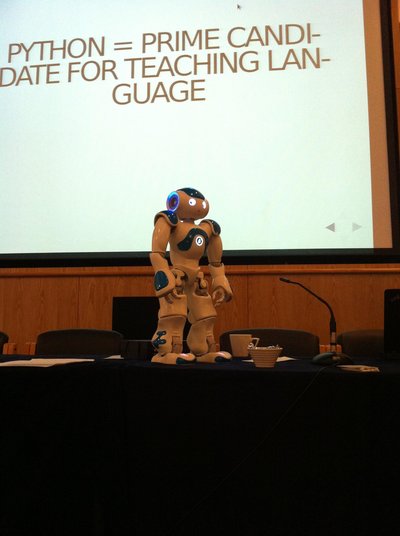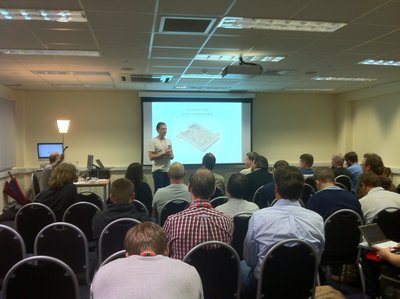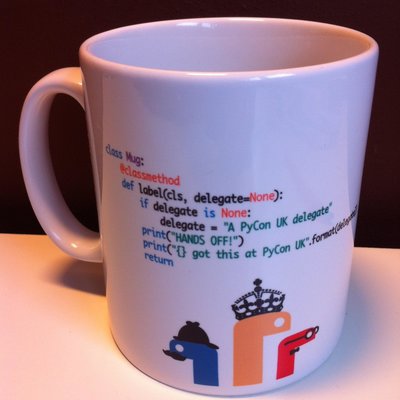Pycon is a four day event covering all thing Python, with talks, workshops, Q&As, food and drinks as well as time to socialize with fellow delegates, hackers & programmers. Alas due to personal commitments I only had two days, day one and the final day.

Although a recent convert to the Python programming language I had heard of this UK 'franchise' of the event before. It being hosted in previous years in my home city of Birmingham, England. Since I work in tech I was already in the habit of keeping myself aware of ongoings in the industry. For the last couple of years now it has been held in the historic city of Coventry at the University of the same name. The venue was the Universities Technocentre, a purpose built conference venue. I arrived in time for morning registration and helped myself to tea and breakfast with people already milling around the common areas. Tickets to this event are not cheap, and at £150 you're their either because you have a stake in Python or you have been sponsored by your employer to be there.

Each day is structured pretty much the same way with with food in the morning follow by talks, workshops and a keynote lecture by someone of note in the world of Python. The first keynote of the event was by was Mr Van Lindberg. Van, is a key member of the Python Software Foundation, which is a non-profit corporation that holds the intellectual property rights behind the Python language. Obviously a seasoned presenter of information to large audiences, Van outlined the strengths and the threats to the popularity of the 'Python Ecosystem'. These threats were mainly but not exclusively from Javascript, Java, Googles 'Go'. Such talks although void of code, do and did provide me with a useful view of one the future of the language and which other competitor technologies I should keep an eye on. Keynotes can also be useful from a motivational viewpoint and help one to appreciate the larger community are involved with. I would recommend attending every keynote speech you can.

The Pycon organizers publish a formal schedule of events and talks but the event itself is very much organic and anyone can give a talk on a particular related topic and their own projects. There is nothing stopping someone from giving a brief thirty second introduction into a topic if only to make contact with people in your field. Personally I wished to make contact with attendees who traveled from my region and the organizers graciously made an announcement on my behalf and also updated the event Wiki with my request.
The final days are reserved for Sprints. To quote the event Wiki
A Sprint is a get-together of people involved in a project or those that wish to get involved. It gives an opportunity for focused development on the project and is a great opportunity for people to immerse themselves in a project to a much greater level than a conventional talk. The Sprint was held on day four in the main hall and each project was organized around a table. The idea is to approach a project table and help out by fixing bugs, writing documentation, etc. Sprints are heavily attended by core contributors and enthusiasts and despite my relative inexperience and therefore initial reluctance to attend I did go along to participate in fixing bugs for the Twisted project.
Would I recommend you attend? Definitely, but if you are thinking of attending a Pycon, here are my recommendations on how to prepare.
- Try to get your employer to sponsor you if you are traveling far to be there.
- View the schedule and choose the talks/workshops you wish to attend but don't be afraid to go and sit in on anything esoteric and outside of the your experience. You aren't guaranteed to enjoy all that you see but there will definitely be quite a few you do find useful such as the talk on the Kickstarter campaign for Micropython I attended.
- Do join the Sprints if you can, find a project that interests you; do a bit of reading if its new to you. If you don't already know them.
- Make yourselves familiar with Git/SVN work-flows. This will save time on ramp up, enabling you to make bug fixes on the day. You will get a sense of achievement once you make your first commit and probably be given a freebie as a reward at the end of the day.